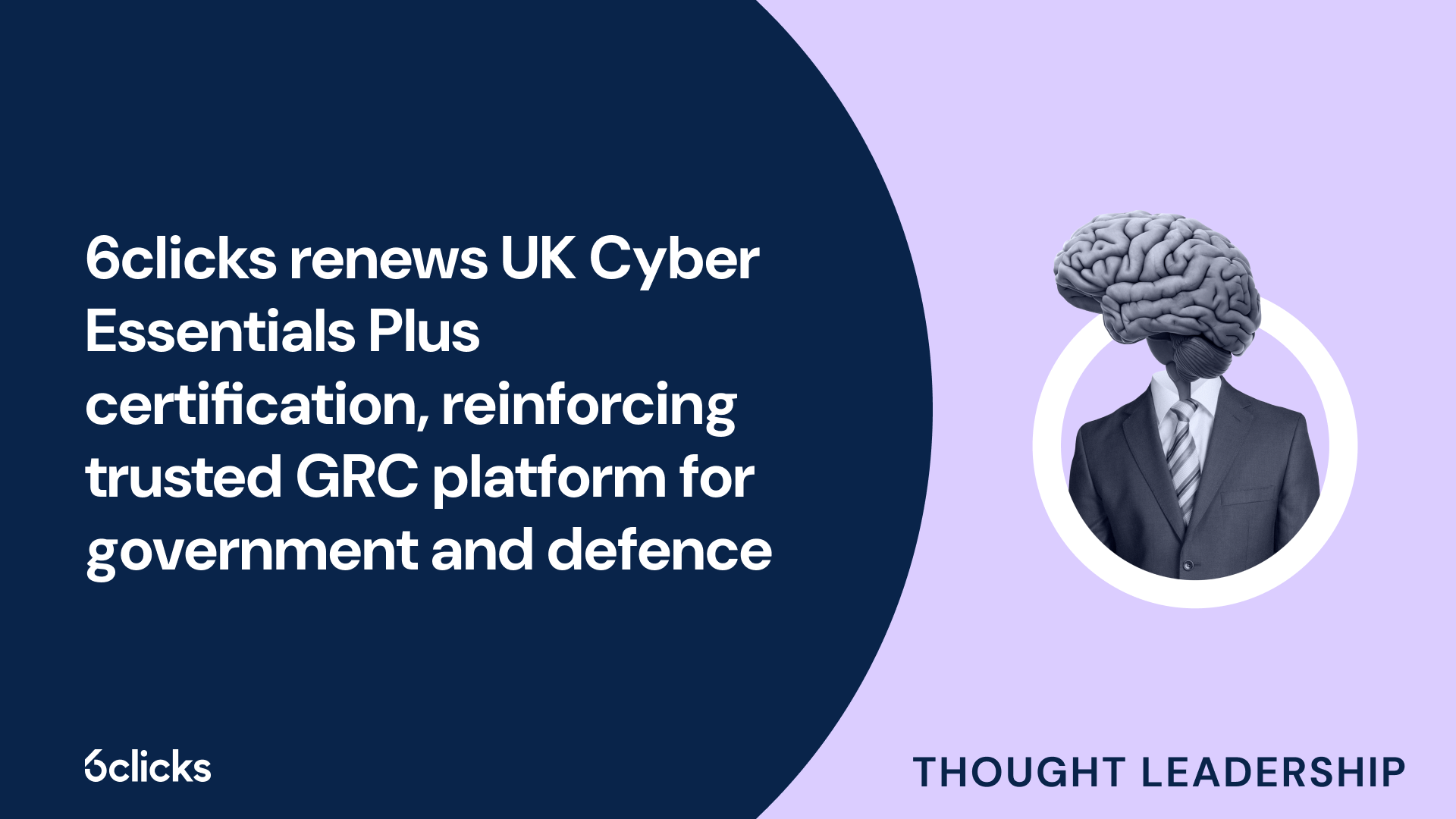The GRC buyer’s guide for 2025: Building resilience with AI-powered, federated solutions
Discover the ultimate GRC buyer's guide for 2025! Uncover how AI-powered, federated solutions transform compliance and security management for industries like government, aerospace, banking, and more. Learn about centralized control, continuous compliance, and advanced cyber GRC capabilities. Download now!
-1.png?width=200&height=249&name=Group%20193%20(1)-1.png)
The GRC buyer’s guide for 2025: Building resilience with AI-powered, federated solutions
What is information security governance?
Information security governance is the framework and processes that ensure an organization's information assets are adequately protected against risks and threats. It is a critical aspect of overall corporate governance that focuses on aligning information security with business goals, managing risks effectively, and ensuring compliance with relevant regulations and standards, such as ISO 27001.
Key components of information security governance
1. Leadership and accountability
Effective information security governance requires leadership from the organization's top executives. The board of directors and senior management must take accountability for establishing and supporting the governance framework. They set the tone for the organization and ensure that information security is prioritized as a business imperative.
2. Policies and procedures
A robust governance framework includes clearly defined information security policies and procedures. These documents provide guidance on acceptable practices, risk management, access controls, incident response, and compliance requirements. Policies must be regularly reviewed and updated to address evolving threats and regulatory changes.
3. Risk management
Identifying, assessing, and mitigating risks to information assets is a cornerstone of information security governance. Risk management involves understanding the organization's risk appetite and implementing controls to address vulnerabilities. This proactive approach minimizes potential damage from security breaches or data loss.
4. Strategic alignment
Information security governance ensures that security strategies are aligned with the organization’s business objectives. It involves integrating security initiatives into the broader organizational strategy to support growth, innovation, and operational efficiency while protecting critical information assets.
5. Compliance and legal obligations
Organizations must comply with laws, regulations, and industry standards that govern data protection and privacy. Information security governance ensures that the organization meets these requirements, reducing the risk of legal penalties and reputational damage.
6. Performance measurement
Monitoring and measuring the effectiveness of information security programs is an essential part of governance. Metrics and key performance indicators (KPIs) help assess whether security objectives are being met and provide insights for continuous improvement.
Benefits of information security governance
- Enhanced risk mitigation - A well-structured governance framework helps organizations identify vulnerabilities and implement controls to minimize risks. This reduces the likelihood of data breaches, cyberattacks, and other security incidents.
- Regulatory compliance - Governance ensures that the organization adheres to relevant data protection laws and standards, such as GDPR, HIPAA, or ISO 27001. This compliance reduces legal risks and builds trust with stakeholders.
- Improved decision-making - With clear policies, procedures, and metrics, decision-makers can make informed choices about resource allocation, technology investments, and risk management strategies.
- Increased stakeholder confidence - Demonstrating a commitment to information security governance enhances trust among customers, partners, and investors. It shows that the organization takes security seriously and is prepared to handle challenges effectively.
- Operational efficiency - Integrating security into business processes helps streamline operations, reduce redundancy, and improve overall efficiency.
In conclusion, information security governance is essential for organizations to safeguard their information assets, achieve compliance, and align security strategies with business objectives. By implementing a robust governance framework, businesses can mitigate risks, enhance decision-making, and build a culture of security awareness. With 6clicks, you can streamline information security management and governance through our robust security compliance functionality. Learn more by booking a demo.












